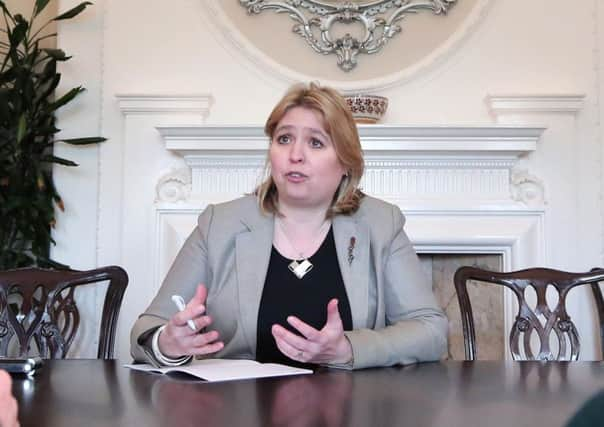Do not return to the status quo without protection for Union


Article 4 of the 2007 Lisbon Treaty – a key part of the EU constitution – states that the EU will respect the “territorial integrity” of member states; this stands in stark contrast to their attempts to place a border down the Irish Sea and thus effectively subsume Northern Ireland into an economic United Ireland within a wider EU Customs Union.
The Irish Prime Minister previously sought to reassure unionists in October 2017. He told BBC Spotlight: “I wouldn’t like us to get to the point whereby we are changing the constitutional position here in Northern Ireland on a 50% plus one basis”.
Advertisement
Hide AdAdvertisement
Hide AdMr Varadkar also went onto to allude to a potential figure of a 70% vote in a referendum for a constitutional change to take place.
If the Irish Government are serious about reassuring the unionist community that they are not launching a covert attempt to wedge Northern Ireland out of the United Kingdom, then why don’t they provide consent for an amendment to the Belfast Agreement that would positively reflect the Irish Prime Minister’s position in relation to the requirement for a figure of 70% in a referendum on Irish unity?
This change to the treaty could be made by the consent of the British and Irish Government.
The treaty, as we will explore later on, is an entirely separate matter to the 1998 Northern Ireland Act, which wrote devolution into law at Westminster in the wake of the Belfast Agreement.
Advertisement
Hide AdAdvertisement
Hide AdSuch a positive step by the Irish Government, which would reflect their quite sensible position in relation to a border poll, would undoubtedly provide reassurance to many unionists.
Indeed, the DUP negotiators in any future talks process should make this amendment to the Belfast Agreement a pre-condition.
It was, of course, Sinn Fein that opened the door to amending the Belfast Agreement when they produced their ‘no return to the status quo’ mantra.
Unionism should not return to the ‘status quo’ without enhanced constitutional protections for Northern Ireland.
Advertisement
Hide AdAdvertisement
Hide AdHowever, the consent of the Irish Government, or a Stormont deal, would not be required if the British Government simply made such aforementioned amendment to the Northern Ireland Act 1998.
This is something that the DUP could, and should, explore unilaterally with the British Government in the absence of the Irish Government making a positive step on amending the Belfast Agreement.
The 1998 Act is entirely a matter for the British Parliament, and therefore can be amended or repealed unilaterally by a simple Parliamentary majority. To state that the consent of the Irish Government would be required to amend the 1998 Act would create a constitutionally unthinkable situation whereby a foreign Government had a veto over the legislation that governs part of the United Kingdom’s lawful territory.
That would give Northern Ireland a hybrid British-Irish status and would effectively amount to joint authority.
Advertisement
Hide AdAdvertisement
Hide AdThere is a world of difference between the constitutional ‘principle of consent’ and what I will term consensus.
The Secretary of State, speaking at last week’s Northern Ireland Affairs Committee, appears to be stretching the principle of consent to also meaning consensus.
Secretary of State Karen Bradley, speaking at last week’s Northern Ireland Affairs Committee, said [when asked about changes to the political process] “we believe in the principle of consent... if there’s consensus across both communities, with a majority of nationalists and a majority of unionists believing that changes need to be made, then that was something we’d look at”.
If we follow Karen Bradley’s position then any amendments to the 1998 Act should be subject to the consensus of a majority of unionists, nationalists and the Irish Government.
This would be an astonishing position for any British Parliament to take.
It would de-facto surrender parliamentary sovereignty in relation to Northern Ireland.